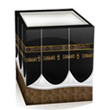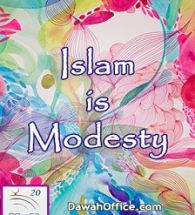To what degree should a Muslim be concerned with politics?
- Details
- Category: Sheikh Bin Baz
- Published on Sunday, 10 November 2013 10:59
- Hits: 1304
To what degree should a Muslim be concerned with politics?
Question:
To what degree is a Muslim to be concerned with politics today, within it's Islaamic guidelines?
Answer:
If what is intended by "politics" is the administering of the ummah, then the reality is that politics is not from the acts of one individual from the people of the ummah, but rather, it is from the duties of the Muslim State. This is if the objective behind politics, as we stated before, is the administering of the ummah and the managing of its concerns in order to rectify what is in it from its religious and worldly affairs. So if this is what is intended by "politics", then this is fard kifaayah (a collective obligation). However, it is not for those people who are not in control of the state or of the rule, nor for those who can neither produce benefit nor cause harm.
As for obtaining the news to be aware of the state of affairs and the weakness the Muslims are in, and in order to avoid this outcome, then as we say, this is from the tasfiyah (purification) and the tarbiyah (educating) - purifying Islaam from what has entered into it and focusing on educating the Muslims and bringing them up on this purified Islam. So knowing these general circumstances, which encompass the Muslims, is a must for the matter is as the old Arab poet has stated, taking his meaning from an authentic hadeeth:"I learned evil not for the sake of evil, but to avoid it And whoever doesn't know good from evil, he will fall into it."
This is derived from a hadeeth - and I mean by it, the hadeeth of Hudhaifah Ibn Al-Yamaan, radyAllaahu 'anhumaa, which is reported in the Saheehs of Al-Bukhaaree and Muslim. He, radyAllaahu 'anhumaa, said: "The people used to ask Allaah's Messenger, sallAllaahu 'alayhi wa sallam, about the good, but I used to ask him about the evil for fear of it reaching me." So being aware of what the Muslims are upon from humiliation and weakness in order to turn them away from that towards using the means of knowledge, strength and power, this is an obligation from the many obligations.
As for engaging at length in obtaining news, knowledge of battles and western politics, then this is from the aspect of: "Knowledge of something is better than being ignorant of it." This is something that we do not forsake. However, at the same time, we must not be very enthusiastic and fanatical about it. This is since the Prophet, sallAllaahu 'alayhi wa sallam, did not establish the affair of his Companions on knowing and following precisely, the news of his enemies to the same extent as he, sallAllaahu 'alayhi wa sallam, used to focus on teaching his Companions from one perspective and cultivating them on Allaah's command from another perspective. This is our belief concerning politics based on their two categories, which we have mentioned previously.
Shaykh Naasir ud-Deen al-Albaanee
Al-Asaalah No. 18
Translated by Ismaal Alarcon





















